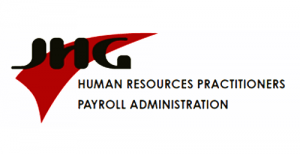FAQ – Support
FAQ
... - Support

Absence on a Friday, Monday and before and after Public Holidays
“In my contract of employment it states that if an employee is off sick on a Friday or a Monday, or on the Friday and the Monday, or if the employee is off sick the day before and/after a public holiday, the employee must produce a sick note, otherwise the time off will be treated as unpaid leave. Is this clause legal?”
No it is unlawful. The BCEA states clearly in Section 23 that if an employee has been absent from work for more than 2 consecutive days (which means 3 days or more) then he/she is obliged to produce a medical certificate. A Friday is 1 day only, and a Monday is 1 day only, and the same applies to the day before and the day after a public holiday - those days each constitute only 1 day, and therefore no medical certificate is required. However, if the employee is absent on more than 2 occasions (even if the occasion is 1 day only) during the same 8-week period, then on the third occasion of absence during that 8-week period the employer is entitled to insist on a sick note, and if it is not produced, the employer is not obliged to pay the employee for the time off.
Calender month versus 4 weeks’ notice
“One of my staff members has given me 4 weeks’ notice. His employment contract states deliberately 1 calendar month. What can I do?”
The conditions of the employment contract are lawful. The period of notice applies to the employer as well, namely should the employee be retrenched or dismissed with notice, the employer is obliged to also give the employee one calendar month’s notice. If the condition applies to both parties, then the employer can force the employee to comply with the condition. Should the employee refuse and simply leave the employ, the employer can sue the employee for damages in terms of breach of contract.
Taking leave in notice period
“I have resigned and have 28 days leave due to me. Can I take this leave during my notice period? I have told my employer I want to take my leave in my period of notice but she refuses.”
You are unfortunately not allowed to take leave in your notice period. Section 20 (5) (b) of the Basic Conditions of Employment Act (BCEA) states clearly that "the employer may not require or permit an employee to take annual leave during any period of notice of termination of employment.” This means that, in terms of the act, an employee is prohibited from taking leave during his period of notice on resignation, and the employer is prohibited from forcing the employee to take leave during any period of notice.
When all leave has been exhausted – unpaid leave
“One of our employees has exhausted all his sick leave in respect of his three-year cycle, as well as the annual leave for the current cycle. The employee now needs to go for an operation and will be off from work for 4 weeks. Are we obliged to pay him?”
No you are not. If all sick leave has been exhausted as well as all available annual leave in the current cycles, and the employee requires further sick leave, there is no legal obligation on the employer to pay the employee and the additional requirement may be treated as unpaid leave.
Payment of leave upon termination of employment
“We have an employee who has resigned and walked out on 24 hours notice. She has already been paid her salary, but we still owe her 15 days leave. Can we withhold her leave pay in lieu of notice?”
You are unfortunately not permitted to do that. Section 40 of the BCEA makes it clear what payments must be made to an employee upon termination of employment, and this includes outstanding leave pay. The only way this can be overcome is if it is inserted into the employment contract as a condition of employment that should the employee contravene the provisions regarding the period of notice required, then the employer would be entitled to withhold salary or leave pay in lieu of notice.
FAQ didn't solve your problem?
Here are additional options available to you.
Join Us & Check the Support Group
We have a support group, where members can ask questions that will answered by our qualified panel.
Contact Us
Telephone: +27 21 919 7635
Fax: +27 21 919 8105
E-mail: office@jhg.co.za

